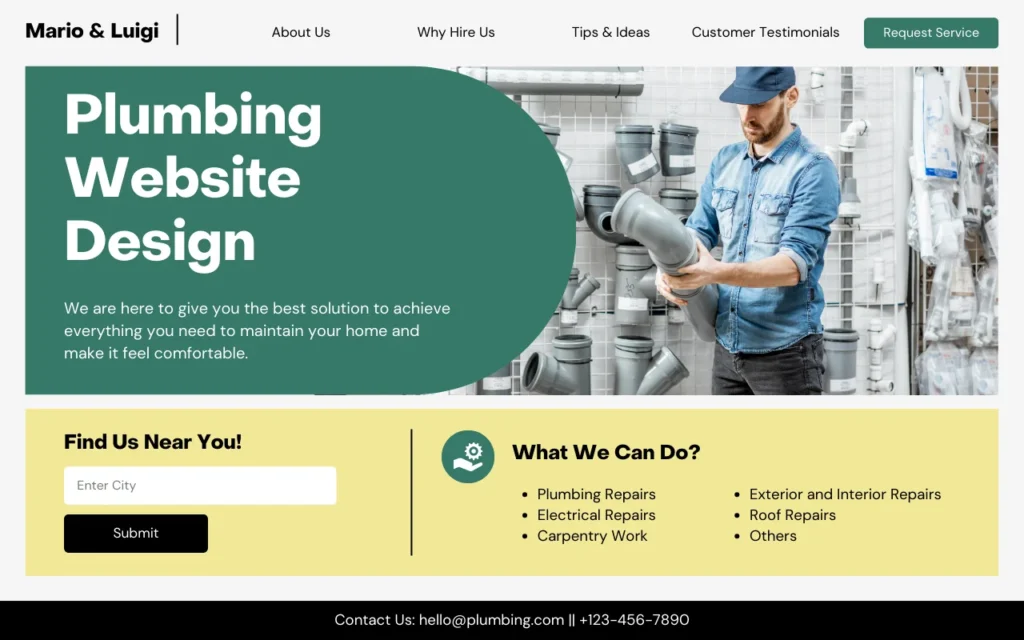Introduction: The Critical Role of Negotiating with Suppliers
In the competitive landscape of modern business, the art of negotiating with suppliers can be the difference between thriving and merely surviving. As David Simchi-Levi, professor of Engineering Systems at MIT and a renowned expert in supply chain management, notes:
“In today’s complex supply chains, the balance of power between buyers and suppliers is changing. Smart companies are moving beyond adversarial negotiations and building collaborative relationships with key suppliers to create value and drive innovation.”
Effective supplier negotiations can lead to reduced costs, improved quality, better terms, and stronger business relationships. However, many businesses fail to capitalize on the full potential of these interactions. This comprehensive guide will delve into the strategies, techniques, and best practices for negotiating with suppliers, helping you transform your procurement process into a powerful driver of business success.
The Foundations of Effective Supplier Negotiations
1. Preparation: The Bedrock of Successful Negotiations
When it comes to negotiating with suppliers, the old adage “failing to prepare is preparing to fail” couldn’t be more accurate. Thorough preparation is the foundation upon which successful negotiations are built. Here’s how to prepare effectively:
- Know Your Numbers: Before entering any negotiation, ensure you have a clear understanding of your current costs, usage patterns, and budget constraints. This data will form the basis of your negotiation strategy.
- Research Your Supplier: Gain insights into your supplier’s business model, market position, and competitive landscape. Understanding their perspective can help you identify potential leverage points.
- Set Clear Objectives: Define what you want to achieve from the negotiation. Is it purely about price, or are there other factors like quality, delivery times, or payment terms that are equally important?
- Understand Market Trends: Stay informed about industry trends, price fluctuations, and supply chain dynamics. This knowledge can provide valuable context for your negotiations.
2. Building Relationships: The Long-Term Approach to Negotiating with Suppliers
While it’s tempting to focus solely on short-term gains when negotiating with suppliers, building strong, long-term relationships can yield far greater benefits. As negotiation expert Leigh Steinberg says, “The most effective negotiators are the ones who prioritize the relationship over the transaction.”
Here are some strategies for relationship-building:
- Foster Open Communication: Encourage honest, transparent dialogue with your suppliers. This can lead to a better understanding of each other’s needs and constraints.
- Show Appreciation: Recognize and acknowledge the value your suppliers bring to your business. A little appreciation can go a long way in building goodwill.
- Seek Win-Win Outcomes: Aim for solutions that benefit both parties. This approach can lead to more sustainable, mutually beneficial relationships.
3. Effective Communication: The Cornerstone of Supplier Negotiations
Clear, assertive communication is crucial when negotiating with suppliers. Here are some key communication strategies:
- Active Listening: Pay close attention to what your supplier is saying. Often, they’ll provide valuable information that can inform your negotiation strategy.
- Ask Probing Questions: Don’t be afraid to dig deeper. Essential questions like “Can you help me understand the reasoning behind this price increase?” can uncover important insights.
- Be Clear and Concise: Articulate your position and requests clearly. Ambiguity can lead to misunderstandings and suboptimal outcomes.
- Use Silence Strategically: After making a proposal or receiving an offer, resist the urge to fill silence immediately. A well-timed pause can often lead the other party to improve their offer.
Advanced Techniques for Negotiating with Suppliers
1. Leveraging Volume: The Power of Bulk Discounts
One of the most effective strategies when negotiating with suppliers is leveraging your purchasing volume. Suppliers are often willing to offer better prices for larger orders. Here’s how to approach this:
- Analyze Your Usage: Review your historical data to understand your consumption patterns. This will help you determine if increasing your order size is feasible.
- Calculate the Break-Even Point: Determine at what volume the discount makes economic sense for your business, considering storage costs and cash flow implications.
- Present the Mutual Benefit: When proposing a bulk order, emphasize how it benefits the supplier (e.g., reduced processing and shipping costs, guaranteed revenue).
2. Negotiating Payment Terms: Balancing Cash Flow and Discounts
Payment terms can be as important as price when negotiating with suppliers. Here are some strategies:
- Early Payment Discounts: If your cash flow allows, negotiate discounts for early payment. A 2% discount for paying within 10 days instead of 30 can translate to significant savings over time.
- Extended Payment Terms: Conversely, if you need to improve your cash flow, negotiate for longer payment terms. Be prepared to offer something in return, such as a commitment to increased future orders.
- Staggered Payments: For large orders, consider negotiating staggered payments that align with your cash flow cycles.
3. Non-Price Negotiations: Looking Beyond the Bottom Line
While price is often the focus when negotiating with suppliers, don’t overlook other valuable concessions:
- Quality Improvements: Negotiate for higher quality standards or stricter quality control processes.
- Faster Delivery: Improved delivery times can reduce your inventory costs and improve your responsiveness to customers.
- Value-Added Services: Some suppliers may be willing to offer additional services, such as inventory management or technical support, as part of the deal.
- Exclusivity: If appropriate for your business, negotiating exclusive rights to a product in your market can be a significant competitive advantage.
Technology and Data in Supplier Negotiations
In today’s digital age, technology plays a crucial role in negotiating with suppliers. Here’s how to leverage it effectively:
1. Data Analytics for Informed Negotiations
Utilize data analytics tools to gain insights that can strengthen your negotiating position:
- Spend Analysis: Use tools to analyze your spending patterns across different suppliers and categories. This can help identify opportunities for consolidation or renegotiation.
- Market Intelligence Platforms: These can provide real-time data on market prices, supplier performance, and industry trends, giving you valuable context for your negotiations.
- Predictive Analytics: Advanced tools can help forecast future demand and price trends, allowing you to negotiate forward-looking agreements.
2. E-Procurement Systems: Streamlining the Negotiation Process
E-procurement systems can significantly enhance your ability to negotiate effectively with suppliers:
- Automated RFQ Processes: These systems can streamline the process of soliciting and comparing quotes from multiple suppliers.
- Reverse Auctions: For commoditized products, reverse auctions can drive competitive pricing among suppliers.
- Contract Management: Digital contract management tools can help you track commitments and performance, providing ammunition for future negotiations.
The Art of Compromise: Knowing When to Concede
While driving a hard bargain is important, knowing when and how to compromise is equally crucial when negotiating with suppliers. As negotiation expert Herb Cohen says, “You can get anything you want if you help them get what they must have.”
Here are some guidelines for effective compromise:
- Prioritize Your Demands: Before entering negotiations, rank your requirements in order of importance. This will help you identify areas where you can afford to be more flexible.
- Understand the Supplier’s Constraints: Try to gain insight into your supplier’s limitations and priorities. This can help you find mutually acceptable solutions.
- Use Conditional Concessions: When making a concession, always try to get something in return. For example, “If we agree to your price, can you guarantee delivery within 5 days?”
- Keep the Long-Term Relationship in Mind: Sometimes, making a concession can build goodwill that pays off in future negotiations.
Ethical Considerations in Negotiating with Suppliers
While driving a hard bargain is important, maintaining ethical standards is crucial for long-term business success. Here are some ethical guidelines to follow when negotiating with suppliers:
- Honesty and Transparency: Always be truthful in your communications. Misrepresentation may provide short-term gains but can severely damage long-term relationships.
- Respect Confidentiality: Don’t use confidential information from one supplier to leverage better terms from another.
- Fair Competition: If you’re negotiating with multiple suppliers, ensure you’re providing equal opportunities and information to all parties.
- Consider Sustainability: Factor in environmental and social sustainability when negotiating. The cheapest option isn’t always the most ethical or beneficial in the long run.
- Respect Cultural Differences: In global negotiations, be mindful of cultural nuances in negotiation styles and business practices.
When to Avoid Over-Negotiation
While skilled negotiation is valuable, there are times when pushing too hard can be counterproductive. Here are some situations where you might want to ease off:
- Critical Suppliers: If a supplier provides a unique or essential component for your business, maintaining a good relationship should be prioritized over extracting every last concession.
- Market Volatility: In unstable market conditions, suppliers may be struggling too. Pushing too hard could lead to supply disruptions.
- Already Favorable Terms: If you’re already receiving terms that are well below market rates, continuing to push for more can damage your reputation and the relationship.
- Quality Concerns: Be cautious about negotiating to a point where the supplier might be tempted to cut corners on quality to maintain their margins.
Continuous Improvement in Negotiating with Suppliers
Becoming proficient at negotiating with suppliers is an ongoing process. Here are some strategies for continuous improvement:
- Post-Negotiation Analysis: After each significant negotiation, conduct a thorough review. What worked well? What could be improved?
- Stay Informed: Regularly update your knowledge of market trends, negotiation techniques, and your suppliers’ industries.
- Seek Feedback: Don’t hesitate to ask for feedback from suppliers on your negotiation process. Their insights can be valuable for improvement.
- Training and Development: Invest in negotiation training for your procurement team. Skills like active listening, emotional intelligence, and strategic thinking can be honed with practice.
Conclusion: The Path to Mastery in Negotiating with Suppliers
Mastering the art of negotiating with suppliers is a journey, not a destination. It requires a blend of preparation, strategy, communication skills, and ethical conduct. By applying the principles and techniques outlined in this guide, you can transform your supplier negotiations from transactional interactions into strategic partnerships that drive business success.
Remember, the goal of negotiating with suppliers isn’t just to secure the lowest price, but to create value for both parties. As you hone your skills, you’ll find that the best negotiations result in strengthened relationships, improved quality, and mutual growth.
So, the next time you’re preparing for a supplier negotiation, approach it with confidence, armed with these insights and strategies. Your business’s bottom line, operational efficiency, and supplier relationships will all benefit from your enhanced negotiation skills.
“The challenge of leadership is to be strong, but not rude; be kind, but not weak; be bold, but not bully; be thoughtful, but not lazy; be humble, but not timid; be proud, but not arrogant; have humor, but without folly.” Apply this wisdom to your supplier negotiations, and watch your business thrive.












